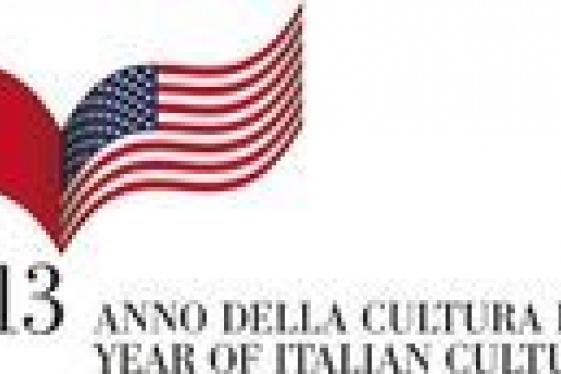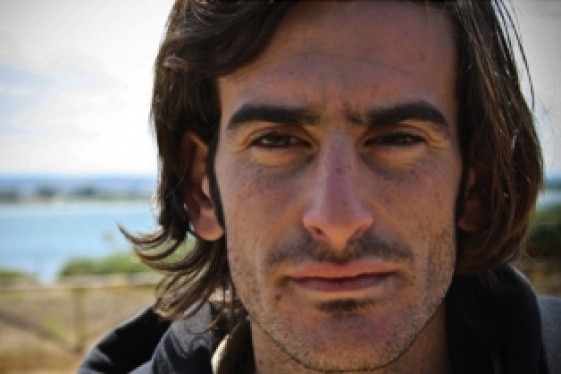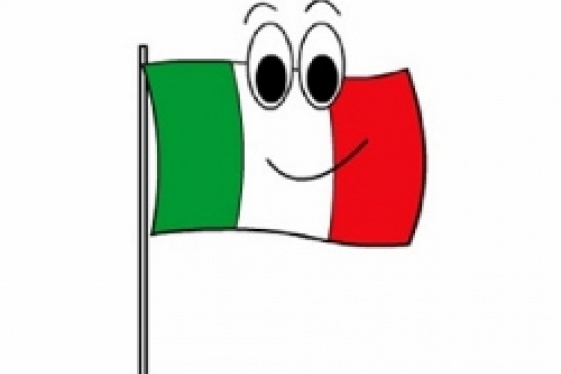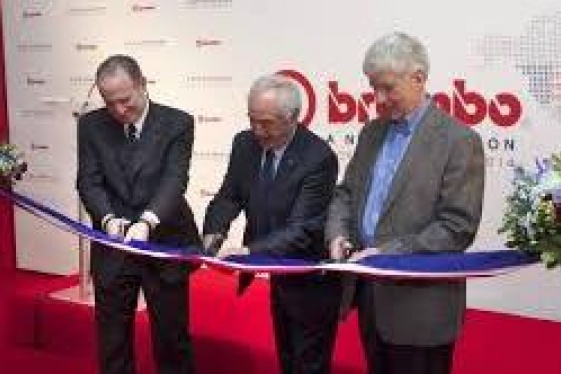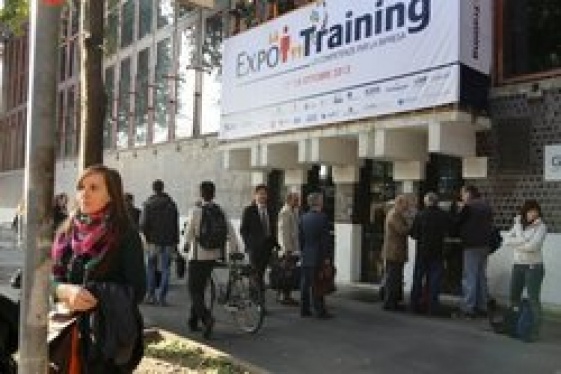
Andrea Meloni (Director General for Country Promotion at the Ministry of Foreign Affairs)
La promozione del sistema Paese negli Stati Uniti e in tutto il mondo

The promotion all over the world of the Italian system, crucial for such a rich country that can offer so much to the world, has definitely been improving in these last few years. This is one of the cases where the crisis has had the effect of developing creativity, cutting where it had to be done, and watch a new leadership growing.
We have already met in two previous interviews Carlo Calenda, the Deputy Minister for the Economic Development with responsibility for Foreign Trade, and the President of Agency ICE (the Italian agency for foreign trade) Riccardo Monti. Today we have the pleasure to meet the third part of this great team, the Director General for Country Promotion at the Ministry of Foreign Affairs, Andrea Meloni.
Director Meloni, what are the activities, the instruments and the services delivered by the Directorate General for Country Promotion, which you have been managing for two years now?
The Directorate General was created four years ago, during the last reform of the Ministry of Foreign Affairs. It was a bold gamble, because the reform put together two already existing topics: the traditional function of cultural relations and the support of business. The novelty was to merge both in a single Directorate General, which has become the entry point of the Ministry for the Italian companies, the first point of contact; and I would say that it also is the interface of the Ministry with the rest of the Italian organizations and authorities that deal with economics. The third component, very important, is what we call "Science, technology and innovation", ie the part about the research, the university and all the transition between research and technological transformation, so even here there is a very close contact with the business world. We then have a fourth part, no less important, which is that of relations with the territorial autonomy, a very lively part in the activities of Italy abroad.
I must say that this experiment is not only bold, but also very interesting, so much so that the other countries studied it; three years ago, the French Minister of Foreign Affairs came to visit us and said that our model seemed great to him, and that in his opinion France should have to do the same.
Of course, if our model works or not, it's not for me to say: but I think that it helps a lot to have this integrated view of several important dimensions, from the economic to the cultural, to scientific and innovation. I think it is useful for us at the center and for the network abroad representing our country.
Despite the economic hardships that continue to characterize the budget of the Ministry of Foreign Affairs, in recent years a considerable effort to promote our country abroad has been made. Please help us to sum up the institutional network that is promoting of the Italian System in the United States?
Currently the network we have in the United States is - of course - the largest that we have in any other country the world. As for the economic aspect, in addition to the Embassy in Washington DC we have nine consulates, five offices of ICE agency and a financial officer of the Bank of Italy in New York. There are also the Italian Chambers of Commerce, certainly, but in a different position, because they are not directly state organs but rather a successful example of public/private admixture: they undoubtedly are a very important component of the system, we work continuously together with them, either us here in Rome with Assocamerestero or abroad with our Ambassadors and Consuls.
We then have many scientific experts, the United States is the country with the largest number of them; we have an important team in Washington DC, which also includes an attendant for spatial issues, given the importance of the subject.
Then we have the network of the Institutes of Culture: we have four (New York, Chicago, Los Angeles and San Francisco) plus the cultural section in Washington DC. In this regard, of course, we are sorry that the post of Director of the Institute of Culture in New York has been vacant for almost a year now: but we recently resumed the procedures to identify a new Director and we are confident that within the first two months of the year the process can be concluded. Naturally, also in this case the one in the US is the larger network that we have in the world.
Well, this - more or less - is our presence in the United States: we try to keep it even if, we cannot hide, there are strong pressures and demands from other parts of the world. For example, in China we are less present than we should be, and generally this happens in the whole Far East. We are now making an effort to cover most of Africa, a continent which is for us a priority for security issues but also because it has huge growth potential. It is not easy to reconcile all these just demands in a time when human resources and the number of foreign offices are shrinking, as is the order of things. We necessarily had to lighten the network in Europe, although with great regret, to ensure greater presence in other key areas of the world.
The budget that the government devotes to the Italian foreign policy and its Ministry of reference is much less than what their counterparts French, English, Spanish and German Governments devote to their countries. My opinion is that, with the few resources available, both here in Rome and around the world, you make an extraordinary job ...
In the future, it is a fact, we will have fewer people abroad, at least in the coming years; then we must equip ourselves to give an adequate service and of course the only way to do that is to work together; first of all with the other administrations. With the Ministry of Economic Development, with the ICE agency, with the Ministry of Culture and the Ministry of Education we work closely on a daily basis. I hear two, three times a day all my colleagues there and I must say, if I can emphasize one aspect, that the Agency ICE has made enormous progress: now we are really a single network.
I recently attended the annual conference of the Directors of ICE offices abroad and I have to say that this network is essential for everybody: they too have reduced their budget for the operation. Today we have a great challenge, because the government decided with the stability law to allocate an important and very significant amount of resources for business promotion, thanks to the job made by the Deputy Minister Calenda.
A recent study shows that in the years 2013-2016 the US have been and will continue to represent the greatest opportunity for export worldwide, reaching a total of $ 450 billion. All this, among other things, without considering the TTIP, Transatlantic Trade and Investment Partnership. What steps will the Italian system take in the United States, in the near future? And how do you think will end the negotiations on TTIP?
North America is obviously a market where we strongly point, because it is growing very much for our companies. There will be a great effort on the retail, on the agri-food, on Italian sounding; they will be hard working years and then we will have to work even harder, together. The resources made available by the government, more radically than before, are on the 2015/16 biennium. The effort involves everyone, because this will also be an innovative way of doing business promotion. And of course, there is an emphasis on the negotiations of TTIP, but as you know it is not just about Italy, but about the whole Europe.
How are you approaching the crucial event of the 2015 World Expo in Milan?
The Ministry for Foreign Affairs has been working on this for years, ever since the candidacy of Italian Expo was launched, in 2008. We have since then a group specifically dedicated to Expo 2015, settled first at the Secretariat General and then at the Directorate General which is now led by me. This team also dealt with the relations with the participating countries, and I would say that we are obviously delighted about the participation of the United States and the manner in which they has come to this decision.
Now that the framework of the participating countries is closed and defined, we are dealing with a lot of the activities that will be held during the Expo; then not only the visits of members of the Governments of the countries that have a pavilion, but also the desire to make the period of the Expo a great opportunity for our companies and our regions. In this regard, in December we presented here at the Ministry a number of platforms for business to business meetings that have been developed by ICE agency, Confindustria, the Milan Chamber of Commerce: very concrete things.
And then of course there is a great opportunity for cultural tourism: we work with the regions on a number of routes for Expo. Well, now we will have a team of ten, twelve people from our Ministry working on this and as of May 1 they will move to Milan, and we will also have a number of young diplomats who will be there to ensure the best success of the initiative.
How can we use the great love of Italian Americans for our country to increase our cultural and financial promotion to the US? Maybe an institutionalization of the year of Italy in the US, which has been so successful in 2013?
Ambassador Bisogniero has done a great job to ensure a series of follow ups to the 2013 year of Italian culture in the United States: already in 2014 there have been many important fruits of this work. Such a great effort, managed and organized by the Ministry of Foreign Affairs and the Embassy in Washington DC, but financially supported by private companies, has been an excellent example of joint working between public and private. It should be understood that it is possible to repeat or even make serial something so important, but it is also very complex.
There is another aspect, then: we have needs and interests in many other countries of the world. For example, this year we will do, smaller and yet very interesting, a year of Italy in Latin America, which will be from mid 2015 to mid 2016. This. In the year in which there is also Expo 2015, brings us a considerable amount of work. We also have bilateral commitments with a number of countries: for example, there will be a year of Italian culture in Egypt, and others. There are so many fronts; however, what has been done and achieved with the year of Italian culture in the United States will be further developed.
One point I would like to emphasize is the extraordinary importance of the presence in the United States of a strong core of Italian scientists and researchers. This is a great resource for us and a great opportunity for our economic growth. In this area we are facilitators: we provide our contacts, our network of scientific attachés and then a direct contact with the great Italian research centers grows up.
You may be interested
-
A Week in Emilia Romagna: An Italian Atmosp...
The Wine Consortium of Romagna, together with Consulate General of Italy in Boston, the Ho...
-
Davide Gambino è il miglior "Young Italian F...
Si intitola Pietra Pesante, ed è il miglior giovane documentario italiano, a detta della N...
-
I Piccoli Cittadini: incontro di educazione...
Saturday, October 24, 10-12 AM in EDT, 1026 Public Ledger Building – 150 South Indepe...
-
Italian auto supplier Brembo to build new U....
Italian brakes maker Brembo will build a new foundry in Michigan to expand its manufacturi...
-
L'Arte del Gioiello Italiano - Lecture and T...
How has Italy influenced the world of Jewelry? Join us for a special lecture on the a...
-
New changes in Italian companies’ relationsh...
by Claudia Astarita Expo Training Observatory is the first Italian fair of traini...
-
'A small New York': Palm Beach to become home...
Miami-born and Italy-raised, jewelry designer and accomplished equestrian Lucrezia Buccell...





